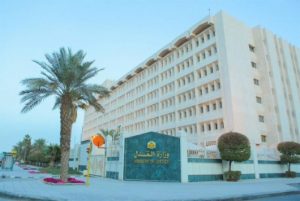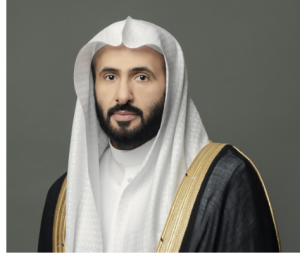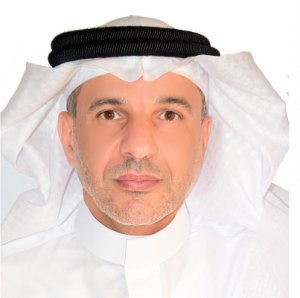
- ARAB NEWS
- 20 Apr 2024

RIYADH: Over the past decade, the technology sector in the Kingdom of Saudi Arabia has grown by leaps and bounds, and with it brought changes that make the lives of Saudi citizens and visitors easier.
Online learning platforms helped children continue their education during the coronavirus pandemic, electronic kiosks aided a million pilgrims in their journey during Hajj 2022 and February’s LEAP tech conference in Riyadh brought tech giants together to discuss the future of technology and AI.
Now, a new conference on the use of digital technologies in the justice sector will explore how the tech and justice fields can merge to increase accessibility and equality in the Kingdom.

The ties between technology and justice will be the focus of the International Conference on Justice in Riyadh, under the theme “Enhancing Access to Justice through the Use of Digital Technologies.”
The two-day event, which starts on Sunday, is being organized by the Saudi Ministry of Justice and will feature judicial leaders and legal experts from over 30 countries as well as 4,000 participants from across the globe.
Distinguished guests will include Tunisian Minister of Justice Leila Jaffal, Undersecretary of the Russian Ministry of Justice Vadim Fedorov and Vice President of the European Union Agency for Criminal Justice Cooperation Bostjan Skrelc.
“The conference is being held within the context of the keenness of the Ministry of Justice to exchange knowledge, judicial expertise and legal enrichment with specialists from around the world. It also aims to enhance international cooperation and to keep pace with the latest global judicial trends,” Dr. Walid bin Mohammed Al-Samaani, the Saudi minister of justice, said in an exclusive statement to Arab News.

“Among the objectives of the conference, we refer to the enhancement of digital capabilities ensuring easy access to justice, consolidation of guarantees within digital judicial applications, being inspired by other countries’ ideas, exchanging experiences and expertise, strengthening relations between countries and establishing partnerships, in addition to highlighting the latest global judicial trends,” he added.
Elaborating on the theme of the conference, Ibrahim Al-Hudaif, a board member of the Saudi-based Axelerated Solutions, told Arab News: “Digitalization is a competitive advantage for nations building up their capacities and will redefine the offering and delivery of services.
“The justice system is a key to building up such competitiveness. Digitalization helps address matters such as limitation of resources, overuse of paper, transparency, better sentencing, commercial transactions, dispute resolution, archiving and retrieval, and virtual courts.”
After discussing the future of justice in light of the world’s digital transformation in the first session, other sessions will discuss various facets of the justice field in an increasingly digital world.
A session titled “Using Artificial Intelligence to Improve Justice” will discuss the importance of data analysis to improve justice, methods of predicting judicial rulings and the future of data analysis in the justice sector.
Dr. Khalid Al-Akwa’a, a consultant on quality and excellence, told Arab News that artificial intelligence “can be used in matters of inheritance and the automation of programs dedicated to dividing the inheritance estate among the heirs with high quality, away from personal jurisprudence.”
He added: “The judicial sector is constantly expanding in benefiting from artificial intelligence applications and deploying them to all employees in order to provide better services and achieve higher professional practices, taking advantage of the regulations and laws keeping pace with technological developments in order to achieve the common goals of dealers in the sector in general.”
The conference will touch on the future of mediation work in light of digital transformation in a session titled “The Future of Alternative Dispute Resolution in Digital Transformation.” The same discussion will examine the potential of digital development in alternative resolutions to disputes as well as the future of digital technology in dispute resolution.
“The Kingdom attaches great importance to alternative means of dispute settlement in light of the digital transformation because of its important role in reducing the flow of lawsuits to the courts,” Imad Alsaedi, director of the Saudi Journalists Association in Madinah, told Arab News.
“Wise leadership pays great attention to the justice sector, spares no effort to empower and support it, and to prepare all means for its development to achieve prompt justice,” he said.
Alsaedi said that work was underway to enhance sustainability and accessibility of judicial services, as well as to increase their quality.
“The recent period witnessed the amendment of many legislations and justice systems to achieve the Kingdom’s vision and facilitate attracting investments,” he said.
In his statement, Justice Minister Al-Samaani said the conference would bring together “an elite group of legal persons and experts to discuss strategies on digital transformation, artificial intelligence, and international expertise in the judicial sector.”
“The Kingdom, led by King Salman bin Abdulaziz Al-Saud and Prime Minister Crown Prince Mohammed bin Salman bin Abdulaziz, is witnessing a qualitative leap in technical development and digital transformation in justice and judicial services within the framework of the Kingdom’s Vision 2030.”
Al-Samaani explained that the Ministry of Justice already provides more than 150 electronic services in the fields of justice, documentation, enforcement and reconciliation, among others.
Al-Hudaif said the success of the Najiz online platform is evident in that it “offers a wide range of services such as real estate transactions, notary service, and more. Such platforms have saved citizens and residents time and effort.”

“The digital infrastructure in the Kingdom has a significant role in digitizing justice services and facilitating access to them, as well as improving the beneficiaries’ quality of life by means of saving time and effort and completing their transactions in a quick and accurate manner, while preserving all guarantees,” he said.
According to Al-Samaani, as of November, more than 90 percent of the Kingdom’s judicial services were completely digitalized, compared with only 15 percent seven years before. Saudi courts have held more than 5 million remote judicial sessions and issued more than 2 million digital court rulings.
Over the past seven years, the Ministry of Justice has launched about 40 initiatives, including one to support the digital justice system. These also aim to simulate economic development by hosting justice services in a secure, reliable and controlled cloud environment, using advanced technologies to ensure round-the-clock availability of these services for beneficiaries in all major work streams within the ministry.
Last year, the Ministry of Justice was honored by Saudi Arabia’s Digital Government Authority as the fastest agency to digitalize its work.

“The MoJ issued more than 12 million electronic powers of attorney, and the electronic transfer of real estate ownership now takes less than an hour,” Al-Samaani said.
“Within the framework of developing the institutional structure of the judiciary, the MoJ reached the digitization of 100 percent of judicial services. In 2023, beneficiaries will not need to visit notaries, as all the main services will be provided 100 percent remotely.”
Other officials stressed the importance of digitalization in service fields such as the justice sector.
“Digital transformation is one of the necessities for the service sector, which seeks to develop and improve its services and facilitate their access to beneficiaries,” Hassan Al-Sarhan, general manager for quality and operational excellence at the National Environmental Compliance, told Arab News.
“Digital transformation does not only mean applying technology within the organization. Rather, it is a comprehensive and complete program in the organization by providing services and making them easier and faster.
“Therefore, there is clear pressure from all segments of society on organizations to improve their services and their availability on all digital channels.”